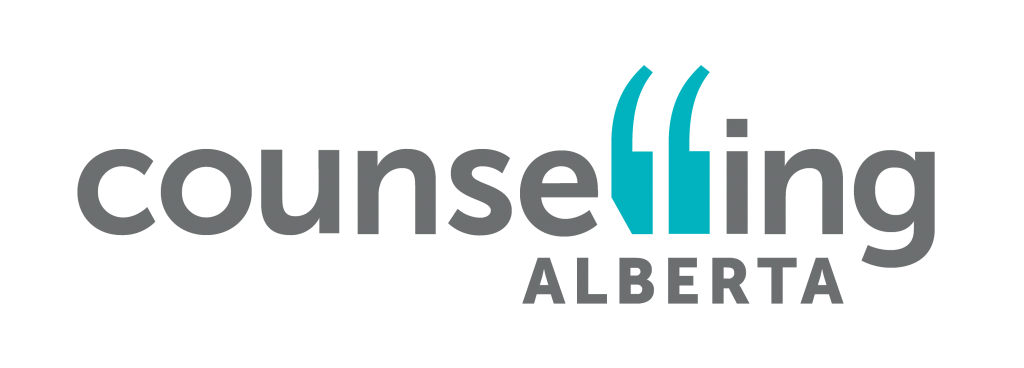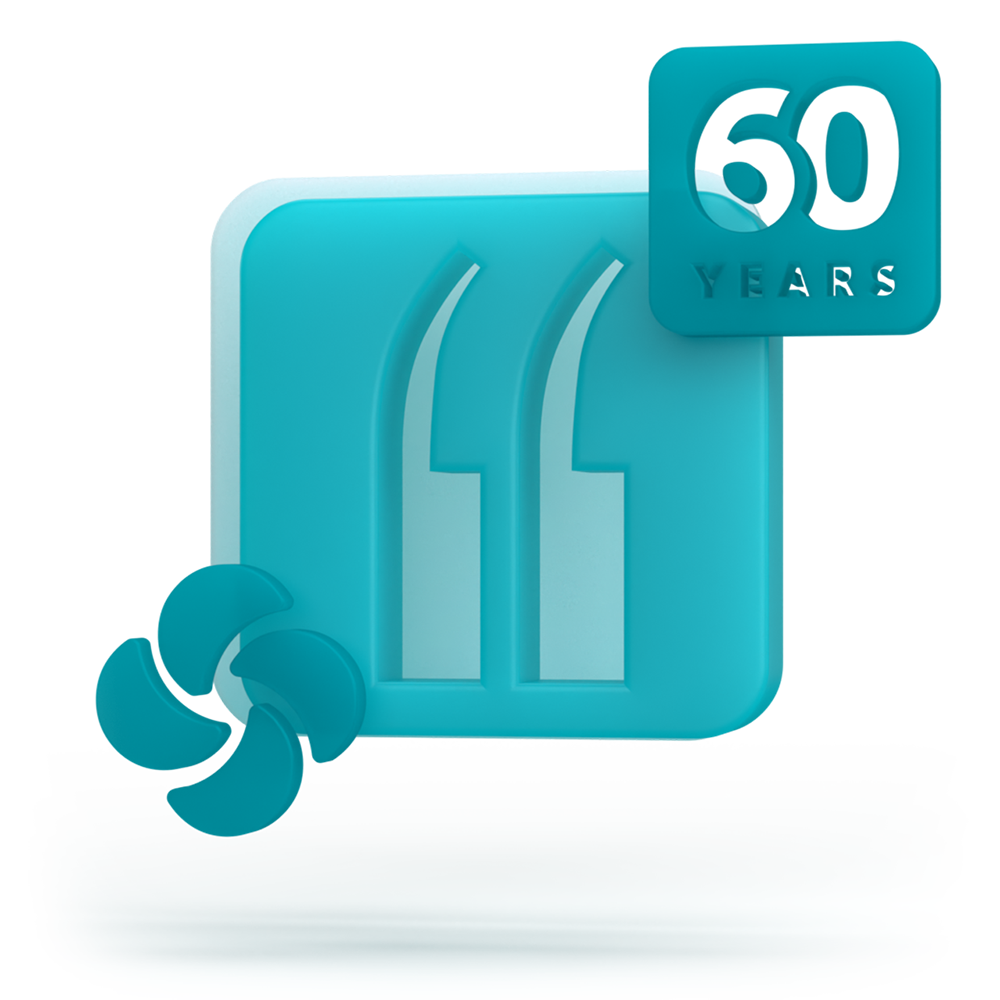Our pillars

Counselling
People learn to thrive at Calgary Counselling Centre. Our counselling programs provide our clients with effective, long-lasting results. Having achieved significant, life-changing results for our clients and making a positive difference in people’s lives, our programs have drawn attention from across the world.
Clients experience three key differences when they receive counselling at Calgary Counselling Centre:
- They receive care quickly. We don’t have a waitlist for our services.
- They don’t have to worry about costs. Our sliding scale fees ensure that clients are able to access services without financial barriers.
- They get results. Through our use of Feedback Informed Treatment, our clients’ rate of improvement and recovery outperforms published benchmarks by 43 per cent.
2022 was an important year for CCC as we continued to provide care to our clients using an online service delivery for all clients, including groups. We provided 40,422 counselling hours including groups in 2022.
Clients comes to us for many reasons. We tailor each of their counselling experiences using Feedback Informed Treatment (FIT). Through questionnaires that clients complete before and after each session, we measure client’s mental health vital signs and the relationship between counsellor and client. These measurements are presented in graphs that both client and counsellor analyse and discuss and make any changes needed to the counselling process to further enhance the client benefits. This process not only gives us reliable information on outcome measurements, which help clients achieve the results they want, but it also helps us develop more effective programs, and helps counsellors improve their practice.
Our counsellors continue to meet regularly with Dr. Scott Miller, an expert in the field of routine outcome measurement and deliberate practice to support our Feedback Informed Treatment approach.
Technology continued to play an important role in client and counsellor sessions, professional training, consultation with international experts, and team building. In 2022 CCC reintroduced in-person team meetings and counselling sessions when requested by clients.

“The past couple of years have been particularly challenging. There are definitely days that are harder than others, but what I’ve gained is the ability to communicate with the people around me, to let them know what’s going on, and to feel supported when things get rough.”
Lyall
CCC Client
There are many reasons why people come to Calgary Counselling Centre. They may be looking for a change, or may be worried about their well-being, or the well-being of someone they love. No matter what the issue, our counsellors are experts in guiding individuals, couples, families, children and youth through their concerns, providing them the skills and tools to tackle life’s challenges.
Specialty Areas
Wilson Centre for Domestic Abuse Studies
CCC has a long-standing history of being a leader in domestic violence treatment and prevention. We provide counselling and group programs for all genders, and for both those that are abusive in intimate relationships and for those that experience abuse. Additionally, we collaborate with other professionals in the community, helping guide their practices on domestic abuse counselling. Throughout our history, we’ve deepened our understanding and have expanded our offerings and approaches accordingly to improve therapeutic treatment of domestic violence.
A vital resource for those in our community who are affected by domestic abuse is the Wilson Centre for Domestic Abuse Studies at Calgary Counselling Centre. Through the Wilson Centre, we partner with researchers across North America to research and better understand and support our clients impacted by domestic abuse.
One of the biggest impacts we have made over our 60 years of service has been in the area of family violence. We’ve been able to provide counselling services to Calgarians impacted by violence and abuse since 1982. Our clinical approach continues to be one which models respectful actions while addressing issues of safety and accountability.

“It was my counsellor who made a difference by being respectful, giving helpful feedback, and being understanding. I didn’t think counselling would be as easy but it was. They helped me understand there are different ways to resolve conflict and to deescalate any situation.”
CCC client
We continue to ensure professionals who work in this area in our community are aware of current laws and legislation and are well trained regarding risk assessment, and management of trauma. Our work to educate frontline workers and the community about male victims of abuse includes collaborating on awareness efforts with diversity committees, speaking at conferences, and our current efforts to expand our work to focus more broadly on men’s mental health.
Our family violence groups, over time, expanded to include separate groups for males and females who abuse and who experience abuse. This year we saw a return to pre-covid demand for group offerings resulting in running four Responsible Choices for Men groups at a time — a group program that works with males who are abusive in relationships.
Our online groups continue to be well received by our clients and our preliminary research on outcomes suggests clients benefit from online groups equally as much as from in-person groups.
We remain committed to working and collaborating at the provincial and local level, attending community practice meetings, offering consultations and working on the High-Risk Offender Committee — a group of agencies working together to ensure public safety and the prevention of crime by high risk offenders.
Our domestic abuse treatment programs provide women, men, and children who abuse or have been abused with the highest level of care. By offering individual counselling, group programs, research, and community partnerships, we have been able to maintain our commitment to ending the cycle of abuse.
Depression & Anxiety
For decades, depression has been one of the top reasons that people seek our help. Globally, depression is the most common mental health issue and a leading cause of disability (World Health Organization, 2021). One in four people will become depressed at some point in their lives. But what we know is that although depression is prevalent, it’s highly treatable.
Our clients receive effective treatment for depression through the use of Feedback Informed Treatment. We measure clients’ progress through counselling, session-by-session, and we assess the relationship between client and counsellor, making adjustments if needed. This process has led to our clients receiving results 43 per cent higher than published benchmarks.¹
¹ Hansen, Lambert, & Forman (2002). The psychotherapy dose-response effect and its implications for treatment delivery services. Clinical Psychology-Science and Practice; (3):329-343. doi:10.1093/clipsy.9.3.329.
Over the years, we have continued to adjust our services to better serve clients with depression and raise awareness of this common but treatable issue. In 2002 we launched the Managing Depression pilot program, a group therapy program for adults. Today, that program, now titled Take Charge of Your Life, runs six times per year and incorporates many key strategies to assist clients experiencing depression, to break through habits of social isolation and work on depression treatment with others in a socially supported environment.
In 2015, we launched our Defy Depression campaign. The Defy Depression campaign aimed to raise funds to expand our reach and services – a comprehensive, transformational way of preventing and treating depression through four pillars: activation, access, education and research. A part of Defy Depression is National Depression Screening Day, held every year in October. Together with our community partners, we raise awareness of depression and encourage those suffering from it to seek help, by offering a free online depression screening test.
In 2022, depression continues to be the third most common reason for seeking counselling. We are maintaining stronger clinical outcomes for treating clients with depression by continuing to offer a combination of individual therapy and group therapy. Our data indicates that clients who complete both individual and group therapy experience higher and longer lasting benefits than with individual counselling alone.
Our counsellors attend monthly consultation sessions with international expert, Dr. Michael Yapko, to assist them to work strategically with clients struggling with depression to build better plans and recover more quickly.
Through research, outcome measurement, and by continually learning new and better ways to treat depression, we have helped thousands of individuals overcome depression and lead full lives.
Children & Youth
In 2022, we provided counselling to 2,409 children, youth, and emerging adults between the ages of 3 and 24.
Calgary Counselling Centre has always recognized that good mental health starts with the family. Children and youth that come to CCC are given the tools to face life’s challenges. From our counsellors they learn problem solving skills and healthy coping strategies. The focus of all our work with children is to integrate the counselling process with both the children and their parents or caregivers. Through the years we have adapted to the needs of our clients and enhanced our programs and services to help arm our young clients with the skills they need to thrive.
Children & Youth Clients by Age Range
3–12
11.4%
13–17
13.0%
18–24
75.6%
In addition to counselling children, youth, and emerging adults, in 2022 we offered a unique group program for children and young adults from age 4 to 18 – Responsible Choices for Children. Our Responsible Choices groups aim to help families deal with conflict, behavioural challenges and problem solving while improving relationships and staying connected to each other.
According to our research, children who participate in both individual counselling and group programs achieve better results than those who only receive individual counselling. A key contributor to this is the use of play therapy in counselling, and group programs help reduce feelings of isolation — it helps kids know they are not alone.
We use Feedback Informed Treatment (FIT) for all our clients, but for children under 12, we use a specific Youth Outcome Questionnaire (YOQ), completed by their parents or guardians. Children 12 and older fill out the YOQ on their own, and their parent or guardian fills out a separate questionnaire.
In 2022, with school returning to in-person classes after pandemic restrictions, and activities relaunching and rebuilding, families reported that they were feeling anxiety with the transition. Our children and adolescent groups continued to run online, but our offerings for 2023 will be based on client feedback and preferences.
Serving children and youth has always been a vital part of what we do at CCC. Making sure our young clients have timely intervention in treating their mental health concerns can make all the difference and set them up for future success.
Education & Training
Student Training Programs
A pillar of Calgary Counselling Centre since the beginning has been to teach and train the next generation of counsellors. We became an accredited training centre in 1975 and today, CCC is the largest training program of its kind in Western Canada. CCC is a national leader for professional training in psychology, social work, and marriage and family therapy and our students have gone on to practice in hundreds of communities across North America and the globe.
Our education program was named the Haskayne Learning Centre for Graduate and Post-Graduate Counseling Studies in 2009 in honour of Dick and Lois Haskayne, one of our major donors. Lois Haskayne served on our board of directors from 1992 to 2001, as well as being a long-term and generous financial supporter of the Centre.
We continue to adapt our training program to meet the current needs of our community. In 2022, we provided comprehensive, hands-on training and supervision to 92 undergraduate and 33 graduate students. Our students participate in weekly clinical practice seminars and receive the most up-to-date experiential training in the counselling field by experienced facilitators and industry leaders, including: Dr. Scott Miller, founder of the International Center for Clinical Excellence; Dr. Michael Yapko, clinical psychologist and depression expert; and Dr. Bruce Wampold, Emeritus Professor of Counselling Psychology at the University of Wisconsin-Madison.

“I had never done any type of counselling before, so it was a huge learning experience for me. I only ever had theoretical understanding of it. So, I think one of the biggest things that I learned was how all of my clients, almost every person struggled with similar issues and how much the human experience is shared. I think oftentimes clients would come to therapy because they felt alone and isolated and that nobody else could understand them. But now, from listening to so many people’s experiences and working with them on their struggles, it’s become a lot clearer to me that we’re not alone, and how relieving it can be for people to hear that they’re not the only one. And I think coming into [practicing] therapy, I had this idea that we have to be magical and have all the right things to say. One of the things I learned was that sometimes the little things, the simple stuff, like acknowledging and validating can be enough sometimes to get people in a place where they feel like they can grow.”
Anna
CCC intern, May–December, 2022
Since the onset of the pandemic in 2020, new students are onboarded online, receiving a thorough introduction to the Centre and what to expect during their time as a student at CCC. Our current online onboarding and orientation process for new students and staff is streamlined, engaging and informative. Offered three times per year, our students receive the foundational training for counselling and for developing skills to work virtually to provide online counselling services to Albertans by using online experiential training including the addition of a learning platform that incorporates online units and simulator experiences. Our use of technology has also helped refine the way students and supervisors work and connect with each other, creating a richer educational experience.

“I think what surprised me the most is that you work with clients right from the start of the internship. And I think that you don’t quite feel prepared or ready for it. But I think like most things in life, we’re never put in a place where you’re totally 100% ready to go. Sometimes you just have to step into it. So I feel like even though it’s a steep learning curve at the beginning, it’s also probably the thing that gives you the confidence to know that, hey, I can do hard things. I can handle hard things.”
Ashley Enzie
CCC intern, May–December, 2022
In 2022, we began working on a research project which will help us understand more about the impact and effectiveness of clinical supervision on counselling trainees as well as client outcomes.
In addition to the training we provide our counselling students, CCC counselling staff also facilitated customized workshops and webinars to members of the Calgary business community to address their specific mental health concerns and build their resiliency.
Calgary Counselling Centre also welcomes students from the fields of communications and marketing, research, information technology, and graphic design every year. At CCC, they have the opportunity to gain practical skills they can apply in their future careers and areas of study.
Education has been and will continue to be of utmost importance to Calgary Counselling Centre. In our 60 years, above all else, we’ve strived to improve the lives of our clients and our students bring tenacity, fresh perspectives, and a desire to serve our clients which helps us evolve, innovate and deliver results with unparalleled outcomes.
Community
Our 60-year history has seen Calgary Counselling Centre not only serve and support individuals and families, but also establish ourselves as a strong community resource. We are a solid support for our community, sharing our knowledge and helping build the resiliency needed to overcome our common challenges.
In our 60th year, we were thrilled to announce the launch of Counselling Alberta, a division of Calgary Counselling Centre aimed at expanding effective, affordable counselling across Alberta. This expansion of services outside Calgary was made possible through a partnership between the Government of Alberta and Calgary Counselling Centre to address the growing need for mental health services in the province. Alberta’s government provided CCC with $6.75 million over the next two years to expand and facilitate access to online and in-person counselling throughout Alberta, including in rural areas.

Launched in June, Counselling Alberta provides online counselling to all Albertans as well as in-person counselling in Edmonton, Fort McMurray, Grande Prairie, Lethbridge, Medicine Hat, and Red Deer. This expansion of services outside of Calgary and area helps to ensure that every Albertan can have easy access to highly effective counselling without needing to wait or worrying if they can afford it.
Another aspect of our community collaboration is our multi-year contract to support Veterans Affairs Canada in their reimplementation of Feedback Informed Treatment across Canada. This year we started a new training initiative with Veterans Affairs Canada to provide Feedback Informed consultations to their clinics across a national network, focusing on enhancing their client outcomes.
Our decades of experience serving the community has shown us the need for mental health resources when disasters strike. We’ve responded to the needs of our community through many difficult challenges including natural disasters, pandemics, and economic turbulence. CCC counsellors have begun working with clients referred by the Provincial Victims of Crime Program to provide short-term crisis counselling for immediate assistance. This program provides counselling to reduce the impact and trauma affecting individuals and families who have experienced a serious crime.
CCC continues to be an active member of the City of Calgary’s Emergency Wellness Response Team to ensure that a coordinated community response is initiated wherever possible to respond to the mental health needs of Calgarians impacted by emergency situations.
During our 17th annual National Depression Screening Day (NDSD) initiative which took place from October 3 to 9, 2022, we encouraged our community to check in with their mental health and take small, manageable steps to feel better. During this week, CCC offered a free, anonymous, online questionnaire for anyone to check-in with their mental health. The online tool developed by the Harvard Department of Psychiatry and adopted by Calgary Counselling Centre, screens for symptoms of depression. Referrals and resources are provided at the end of the questionnaire. In 2022, 3,645 people worldwide took the test with 2,092 participants from Calgary. More information about this initiative can be found in the 2022 NDSD summary report.
As we look to the future, we will continue to expand and enhance the way we support our community. With our focus now being Alberta wide, we will listen to the unique needs of Albertans and respond to meet those needs.
Research
Since 1996, Calgary Counselling Centre has been committed to excellence in clinical counselling practice through research. The research department has focused on clinical care insights and original science since its inception and in 2022, and our researchers continued to advance this mission. The research team is responsible for program evaluation, reporting to funders and community leaders as well as a variety of research projects focused on enhancing and improving our programs and services. This important information helps our counsellors use Feedback Informed Treatment (FIT), which allows counsellors to improve what they do as they tailor services to each client’s needs. The research team also creates and publishes new research findings, which not only enhances the quality of care at CCC but also contributes to advancements in the field of counselling.
A key focus for the research department in 2022 was efficiency. We streamlined many of our reporting capabilities for faster and more flexible research insights.
Here are some other 2022 highlights:
- We continued our study of clinical supervision methods in collaboration with Dr. Bruce Wampold and Dr. Michael Ellis. The study results will help inform the best possible clinical training and improve client outcomes at CCC.
- We piloted a study to explore how in-session conversations relate to counsellor-client relationships and counselling outcomes.
- Research operations were supported by 8 practicum students and 2 volunteers. Students and volunteers helped complete research tasks, presented their research at CCC luncheons, and gained real-world experience in practical statistical programming and data science.
- We conducted a study that compared the effectiveness of in-person counselling before the COVID-19 pandemic to virtual counselling during the pandemic. We discovered that clients seeking help during the pandemic had higher levels of distress when they started counselling. However, both in-person and virtual counselling were equally effective in helping clients improve their mental well-being. (The results of this study were published in the scientific journal, Psychotherapy.)
2022/2023 Publications
Goldberg, S. B. Babins-Wagner, R., Imel, Z. E., Caperton, D. D., Weitzman, L., & Wampold, B. E. (2022). Threat alert: The effect of outliers on the alliance-outcome correlation. Journal of Counseling Psychology, 70(1), 81-89. Doi: 10.1037/cou0000638.
Mehta, M., Caperton, D. D., Axford, K., Weitzman, L., Atkins, D. C., Srikumar, V., & Imel., Z. E. (2022). Psychotherapy is not one thing: Simultaneous modeling of different therapeutic approaches. Proceedings of the Eighth Workshop on Computational Linguistics and Clinical Psychology. https://aclanthology.org/2022.clpsych-1.5.pdf
Gurm, K., Wampold, B. E., Piatt, C., Jagodzinski, R., Caperton, D. D., & Babins-Wagner, R. (2023). Effectiveness of telemental health during the COVID-19 pandemic: A propensity score noninferiority analysis of outcomes. Psychotherapy. Advance online publication. https://doi.org/10.1037/pst0000472
2022 Presentations & Conference Papers
International
Babins-Wagner, R. (2022). Routine outcome monitoring and deliberate practice. Brief paper session moderated at the 53rd International Annual Meeting of the Society for Psychotherapy Research. Denver, CO.
Ng, C. W., Axford, K. E., Caperton, D. D., Weitzman, L., Atkins, D. C., & Imel, Z. E. (2022). Tracking feminist-multicultural interventions: Development of a counseling process measure. Paper presented at the 53rd International Annual Meeting of the Society for Psychotherapy Research. Denver, CO.
Mehta, M., Caperton, D. D., Axford, K. E., Weitzman, L., Imel, Z. E., Srikumar, V., & Atkins, D. C. (2022). Classifying utterance-level psychotherapy interventions using transformers. Paper presented at the 53rd International Annual Meeting of the Society for Psychotherapy Research. Denver, CO.
Axford, K. E., Caperton, D. D., Weitzman, L., Atkins, D. C., & Imel, Z. E. (2022). Do I do what I say or just do what I do: Agreement of therapist skill use with self-reported theoretical orientation. Paper presented at the 53rd International Annual Meeting of the Society for Psychotherapy Research. Denver, CO.
Caperton, D. D., Weitzman, L., Atkins, D. C., & Imel, Z. E. (2022). Development and psychometric properties of a multitheoretical, statement-level measure of psychotherapy interventions. Paper presented at the 53rd International Annual Meeting of the Society for Psychotherapy Research. Denver, CO.
Caperton, D. D., & Imel, Z. E. (2022) A measure for coding statement-level, multitheoretical psychotherapy interventions: Development and applications in psychotherapy process research and natural language processing. Panel organized and moderated at the 53rd International Annual Meeting of the Society for Psychotherapy Research. Denver, CO.
Babins-Wagner, R. Laughton, A., & Caperton, D. D. (2022). The mental health effects of the pandemic on children and youth. Paper presented at the 53rd International Annual Meeting of the Society for Psychotherapy Research. Denver, CO.
Babins-Wagner, R., Caperton, D. D., Ellis, M. V., Keough, C., Miksha, E., & Wampold, B. E. (2022). Initial Lessons from a randomized controlled trial of supervision models in a naturalistic setting: Skill-based vs. competency-based vs. routine outcomes measurement. Paper presented at the 16th International Interdisciplinary Conference on Clinical Supervision, School of Social Work, Catholic University, Washington, DC.
Babins-Wagner, R. Laughton, A., & Caperton, D. D. (2022). The mental health effects of the pandemic on children and youth. Presentation given at the 35th Annual Sebastian K. Littmann Research Day at University of Calgary Cumming School of Medicine. Calgary, AB.
Our Donors
The impact we’ve been able to make over the past 60 years would not have been possible without the generosity of our donors. The support provided by our donors has allowed thousands of Calgarians to get the mental health care they need. Our donors understand the value of ensuring that finances must not prevent anyone in our community from accessing mental health services when needed. With their support we have been able to ensure that anyone who needs, regardless of their financial means, can access effective counselling without a waitlist.
Donor Profile
The ongoing stresses, fatigue and health issues our community faced in 2022 continued to challenge many of us. Mental health became a priority for many as the toll of the last few years has weighed heavily and rising costs and inflation grew. Calgary Counselling Centre is honoured that so many individuals, families, groups, foundations, and corporations chose to support CCC clients and their families’ mental health needs this past year through their generous philanthropy. You helped make a difference in our community!
Thank you for your support!
There are too many to list, but we are pleased to share some highlights.
- CCC was grateful to have been selected as the charity of choice for a number of fundraising events last year. This includes Bow Valley Athletic Club as part of their 40th anniversary celebration, and another donor sponsored a pay-what-you-can screening of It’s a Wonderful Life at the Plaza Theatre in Kensington. Events like these support mental health services at CCC for people in our community who otherwise could not afford professional counselling services.
- Donating to the CCC for a third year, The Graduate Students’ Association of University of Calgary, a not-for-profit organization governed by UCalgary graduate students, the GSA is charged with the social, academic and practical well-being and growth of graduate students on campus.
- Thanks to the Shaw Charity Classics Birdies for Kids program presented by Altalink, we were able to leverage their matching program, raising over $97,000 to help those get the help they need without a waitlist at CCC.
- Benevity is a donation processing platform that companies use to power workplace giving, matching and volunteer programs, allowing people to give to or volunteer for their favourite charities. Last year, several businesses like ATB Financial, chose to promote CCC to their staff as a charity of choice which resulted in numerous new donors who became aware of what we do.
- Thanks to PETRONAS Canada for supporting our subsidized counselling program, sponsoring National Depression Screening Day as the Transit Sponsor and supporting an advertorial in the Globe and Mail to raise awareness of our services nationally.
- We were very grateful to the Auxilium Foundation whose $1000,000 investment allowed CCC to leverage other major donors by matching their gifts. We also want to thank a generous donor who provided an additional $30,000 in year-end campaign matching funds and to everyone who gave during our year-end campaign so that we could maximize the opportunity.
Thank you to all our donors and sponsors over the years who have supported the work of Calgary Counselling Centre and invest in our clients’ well-being — you are making a real difference in the lives of many!
Message from the CEO
Read Robbie’s annual letter.

Message from the Board
Read Wendy Tynan’s letter.

Year in Review
Calgary Counselling Centre’s 2022 facts and figures.

